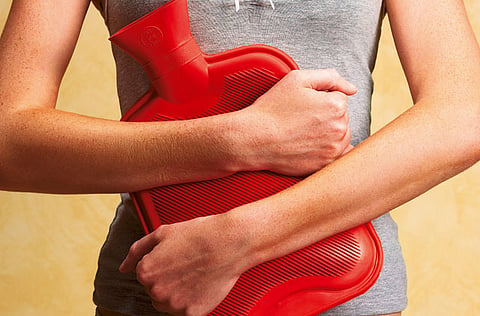Prevent urinary tract infections, urge doctors in UAE as cases peak in summer
Urinary tract infections can affect kidneys if left untreated; tips to prevent them

Dubai: As the scorching summer temperatures in the UAE reach their peak, health experts are warning residents about a rise in urinary tract infections (UTIs) and the importance of taking preventative measures and treatment as they can affect the kidneys if left untreated.
They said it is crucial for residents, especially those in high-risk groups, to take the recommended precautions to prevent UTIs.
“With the sun blazing and the summer season is at its helm, it is a perfect time to talk about UTIs and the ways to prevent them,” said Dr Jahana Mohammed Kacheri, Consultant, Family Medicine, at Aster Clinic, Dubai Land.

Why more UTIs in summer?
UTIs can occur any time of the year. However, Dr Kacheri pointed out that the warm and humid weather in summer creates an ideal environment for bacteria normally present in our body to flourish and invade the urinary tract.
“The bacteria most often involved is E. Coli which is seen in about 70 to 95 per cent of the cases,” said Dr Kacheri.
“Increased sweating and decreased fluid intake lead to dehydration in summer. This results in smaller volumes of urine with increased bacterial concentration. Consequently, there is less urine output and reduced mechanical flushing out of bacteria. These factors increase the risk of getting UTI during summer,” she explained.
According to her, the incidence of UTI peaking in summer had been analysed in the US and a study compared the data of women presenting with UTI in outpatient clinics with the weather data. The results concluded that warmer weather indeed increased the risk of getting UTIs.

“With summer temperatures reaching the highest point of the year, you only produce small volumes of urine, so not staying hydrated could make UTI more common,” he said.
Dr Marwa Edrees, Specialist in Obstetrics and Gynaecology at Burjeel Royal Hospital, highlighted additional contributing factors such as holding urine for longer periods and increased sexual activity.

Other symptoms include cloudy or strong-smelling urine, pelvic pain and cramps and urine urgency, added the other two experts.
Timely medical help
Dr Kacheri said mild infections are generally self-limiting and can be managed by self-care measures like hydration and simple pain relief medications. “[If it doesn’t subside], see your doctor to decide on antibiotics as UTI is easily treated with antibiotics,” she said.
One should seek treatment if symptoms get worse or do not improve within two days.
Dr Kamel said most UTIs are not dangerous and can be treated with medicine. “But if not treated, it can lead to severe infection, fever or chills,” he pointed out.
If you are further late in seeking treatment, Dr Edrees said the infection may be recurrent or progress and cause more severe infections to the kidneys, which may later cause damaged kidney function. “In rare cases, it may spread to the bloodstream and cause life-threatening complications like sepsis,” she cautioned.
Preventative measures
Preventing UTIs primarily involves staying hydrated. Doctors advised residents to drink a minimum of eight glasses of water or two litres of fluid daily.
“Avoid holding or waiting to pass urine for long periods,” Dr Kacheri advised, emphasising the importance of urinating every three to four hours to flush out bacteria.
Wearing absorbable materials like cotton can also help by providing better dryness and reducing bacterial growth, she pointed out.
While Dr Kamel suggested wearing loose-fitting clothing as well, Dr Edrees added that maintaining good hygiene and urinating after intercourse can also further reduce the risk of developing a UTI.
Who is more prone to UTIs?
UTIs can affect anyone, but women are four times more likely to get one than men, according to Dr Kamel.
Dr Edrees identified additional high-risk groups, including pregnant women, immunosuppressant people, patients with anomalies in the renal system, elderly people, diabetic patients, and people with urinary tract disorders like kidney stones.



